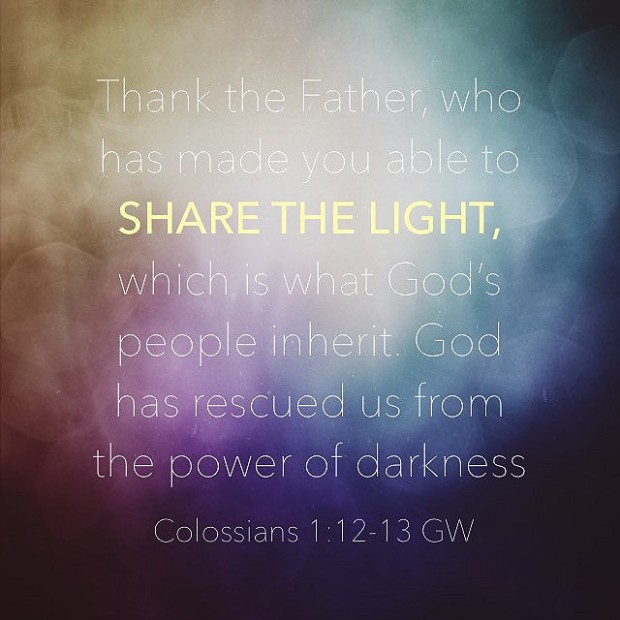Matthew 10:40-42
CLICK HERE TO READ SCRIPTURE ON BIBLEGATEWAY.COM
OBSERVE:
Jesus concludes his missionary instructions to his disciples, as he prepares to send them out to the lost sheep of the house of Israel (Matthew 10:6).
His closing words to them are words of encouragement as they go out into a world that will often be hostile and resistant. He tells them that they are to be his representatives — when they are received with generosity and hospitality, he is being received:
He who receives you receives me, and he who receives me receives him who sent me. He who receives a prophet in the name of a prophet will receive a prophet’s reward. He who receives a righteous man in the name of a righteous man will receive a righteous man’s reward. Whoever gives one of these little ones just a cup of cold water to drink in the name of a disciple, most certainly I tell you he will in no way lose his reward.
There is to be a “vicarious” nature to the ministry of the disciples. They are emissaries, ambassadors for Jesus. And even the offer of cold water will bring reward on those who offer it.
This is reinforced later in Paul’s ministry when he writes:
We are therefore ambassadors on behalf of Christ, as though God were entreating by us: we beg you on behalf of Christ, be reconciled to God (2 Corinthians 5:20).
And Jesus reinforces this theme of “vicarious representation” when he tells a parable of the separation of the sheep and the goats:
Then the righteous will answer him, saying, ‘Lord, when did we see you hungry, and feed you; or thirsty, and give you a drink? When did we see you as a stranger, and take you in; or naked, and clothe you? When did we see you sick, or in prison, and come to you?’ The King will answer them, ‘Most certainly I tell you, because you did it to one of the least of these my brothers, you did it to me’ (Matthew 25:37-40).
The disciples are the representatives of Jesus as Jesus is the representative of God the Father. They are the prophets and the righteous sent in his name. And those who receive these ambassadors and offer them hospitality will be rewarded as though they had ministered to Jesus himself.
APPLY:
Following Christ — really following Christ — can be very difficult. Jesus warns his disciples:
See, I am sending you out like sheep into the midst of wolves; so be wise as serpents and innocent as doves. Beware of them, for they will hand you over to councils and flog you in their synagogues; and you will be dragged before governors and kings because of me, as a testimony to them and the Gentiles… Brother will betray brother to death, and a father his child, and children will rise against parents and have them put to death; and you will be hated by all because of my name (Matthew 10:16-18, 21-22).
But following Christ — really following Christ — is also filled with superabundant rewards. Jesus says:
Everyone therefore who acknowledges me before others, I also will acknowledge before my Father in heaven (Matthew 10:32).
Among the rewards Jesus offers is that those who represent him (who are the prophets and the righteous because of their relationship with him), will be a blessing to those who offer hospitality to them. In fact, those who welcome Jesus’ disciples receive the same reward the disciples can expect!
We are not only to offer ministry in Jesus’ name; we are to welcome those who offer ministry in Jesus’ name as though they are Jesus himself — with the same generosity and hospitality with which we would welcome Jesus.
RESPOND:
I have always been intrigued by the title “vicar.” The vicar is usually a parish priest in the Anglican church, or a deputy or representative of a bishop in the Roman Catholic Church. The Pope himself is known as the Vicar of Christ.
The etymology of the word vicar traces its roots back to the 14th century, as an Anglo-French word sharing the same root as vicarious. Something vicarious is something that is done on behalf of someone else — as when we say that we are saved by the vicarious atonement of Christ.
But vicar also has to do with someone who acts as a deputy, or proxy, or representative of someone else. In that sense a parish priest acts as a vicar on Christ’s behalf, offering Word, Sacrament and Service in his name.
And even more, all who claim the name of Jesus are to offer ministry as vicars on Jesus’ behalf. And we are also to welcome those who seek to minister in his name as though they were Jesus himself.
What a culture of kindness and hospitality this would create in our local churches if this were consistently practiced!
Our Lord, you have offered your own life as a substitute for mine. That is the first and most important vicarious substitution for which I am grateful. Thank you for the call to ministry, and the many ways in which your people have welcomed me as though they were welcoming you! And may I also treat those who seek to preach your Word and share your sacraments and offer compassionate ministry in your name with the same honor and respect with which I would treat you. Amen.
PHOTOS: "A Wing and a Prayer: Radical Hospitality" by stnorbert is licensed under a Creative Commons Attribution-NonCommercial-NoDerivs 2.0 Generic license.







